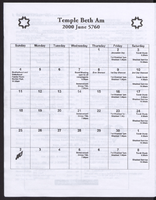Search the Special Collections and Archives Portal
Search Results
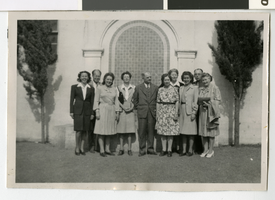
Photograph of K.O. Knudson and others, Las Vegas (Nev.), early 1940s
Date
Archival Collection
Description
Image
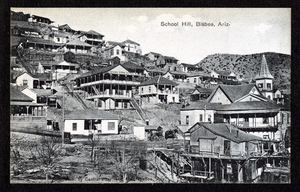
Postcard of Bisbee, (Ariz,), 1900-1920
Date
Archival Collection
Description
Image
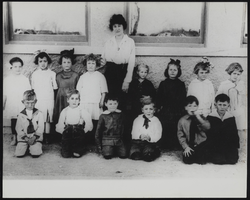
Las Vegas kindergarten class: photographic print
Date
Archival Collection
Description
Image
Sidney R. Whitmore Photograph Album
Identifier
Abstract
The Sidney R. Whitmore Photograph Album contains photographs dating from approximately 1920 that document the Colorado River and mining in El Dorado Canyon, Nevada.
Archival Collection
Clark County Community College Photograph Collection
Identifier
Abstract
The Clark County Community College Photograph Collection consists of black-and-white photographic prints dating from approximately 1977 to 1982. Images depict students, student events, administrative staff, academic faculty, and administrative faculty, including two of the college's presidents, Dr. Russell Bloyer and Dr. Judith Eaton.
Archival Collection
Republican Women of Las Vegas, Nevada Records
Identifier
Abstract
The collection is comprised of the records of the Republican Women of Las Vegas, Nevada dating from 1953 to 1992. The collection includes scrapbooks, photographs, invitations, fliers, magazines, and awards.
Archival Collection
Connie Atkinson Collection of Sheet Music and Music Scores
Identifier
Abstract
The Connie Atkinson Collection of Sheet Music and Music Scores is comprised of original music manuscript arrangements, both handwritten and printed, from composer and arranger Connie Atkinson dating from approximately 1949-2009.
Archival Collection
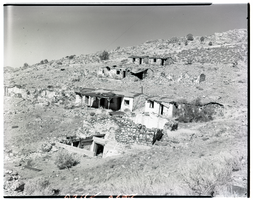
Film transparency of a ghost town, Delamar, Nevada, 1956
Date
Archival Collection
Description
Image
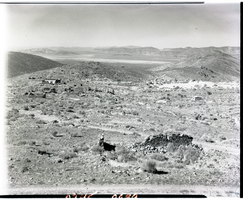
Film transparency of a ghost town, Delamar, Nevada, 1956
Date
Archival Collection
Description
Image

